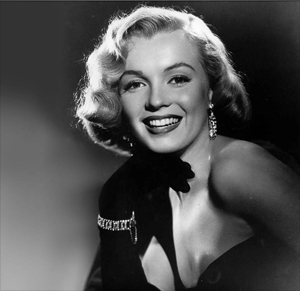Fact and Fiction of Celebrity Addiction
SDSU professor writes book about celebrity overdoses.

Call it fact, call it fiction, call it morbid. SDSU professor of literature and creative writing Harold Jaffe breaks wide-open the underbelly of celebrity culture in his new volume of docufictions "OD."
"OD" tells the story of 16 celebrities and artists who either died from a drug overdose or where drugs contributed to their death. He shares the well-known stories of Marilyn Monroe, Jim Morrison and Jimi Hendrix, but also lesser known stories like that of actress Jean Seberg, singer Billie Holiday and psychoanalyst Sigmund Freud.
More about the book
Jaffe’s book takes facts from cases and embellishes them to emphasize certain points and makes a statement about the factuality of the truth.
“History is purported to be true, but is it?” asked Jaffe. “Fiction is supposed to be invented, but there are always elements of 'truth' in it. Same mixture in unequal degree applies to memoir and biography.”
From Whitney Houston to Brittany Murphy, stories of celebrity addiction and overdose permeate mainstream media and have for decades.
“Mainstream media stories over-dramatize for effect and to increase sales,” Jaffe said. “Their motive is both to condemn drug overdose but also to consume it--that is, to dress the story up so that it can be sold.”
What’s left out of these media stories, Jaffe tackles in "OD."
For example, relatively few people know that Sigmund Freud committed suicide by ingesting morphine. Most music fans do not know about Jimi Hendrix’s Asperger’s or that the FBI was hounding actress Jean Seberg when she committed suicide, explained Jaffe.
“Celebrities use drugs to sustain their fantasies of themselves, or to evoke a certain mood, or to feel energized. Jazz musicians in the 40s and 50s mostly shot heroin. Sixties rockers used cannabis and hallucinogens. Punk bands did speed and coke.”
Larger narrative
The larger narrative looks to go beyond the nitty gritty.
“What people don’t talk about is how close both 'high' and popular art often are to mania and clinical depression; how certain drugs contribute to art-making, even as they often break the artist down,” said Jaffe.
An award winning novelist who received his Ph.D. with distinction in literature from New York University, Jaffe’s other works also focus on topics of popular culture. Jaffe is also editor-in-chief of Fiction International.
"OD" is available through Amazon, Barnes and Noble and in bookstores everywhere.



